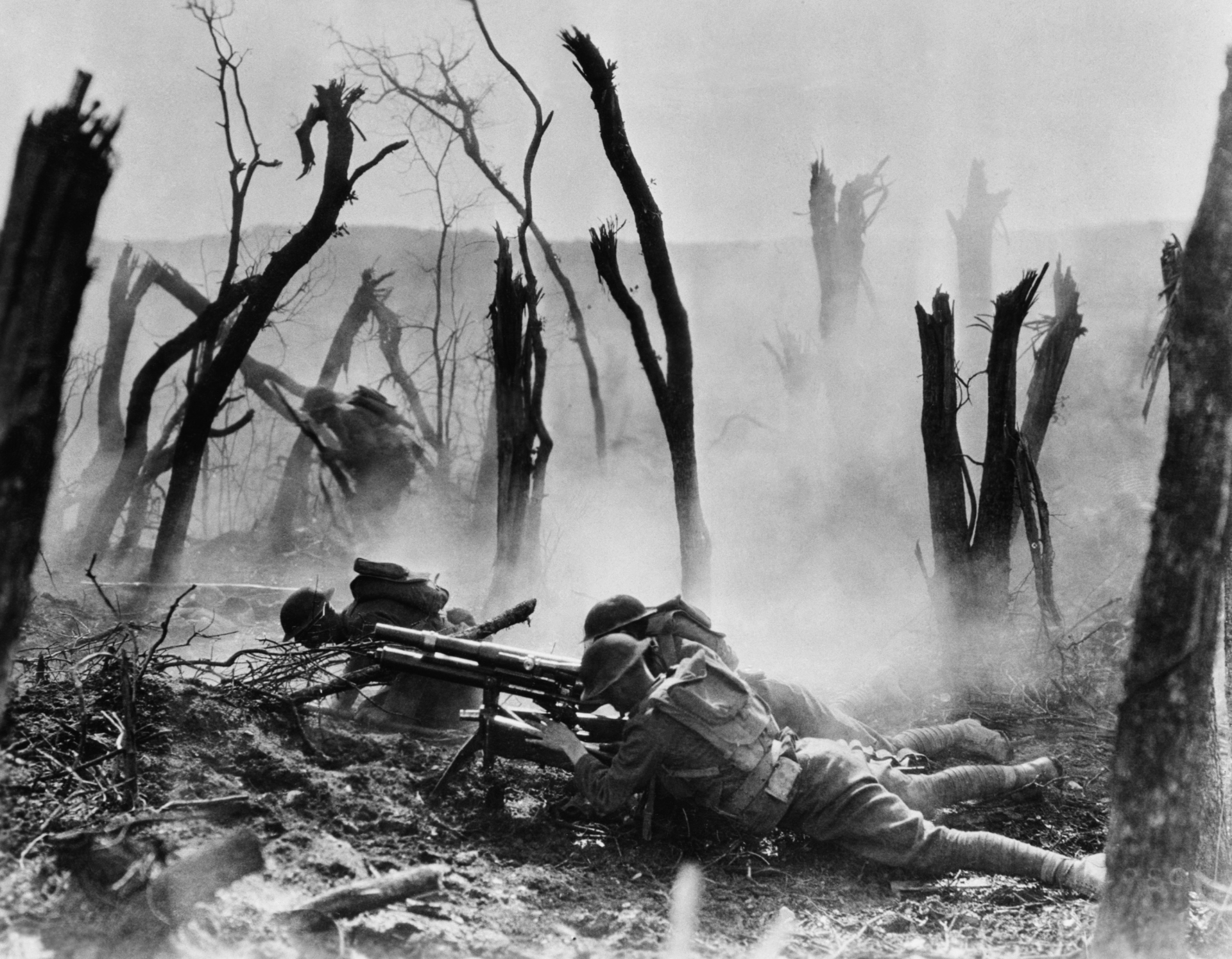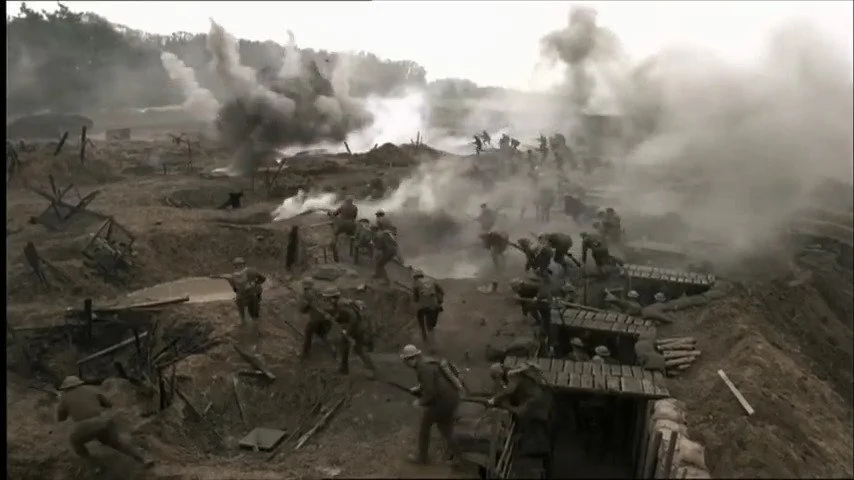Captain Ward Schrantz has written a detailed account of his personal experiences during a 22-month deployment covering his mobilization in the United States, his combat involvement on The Western Front, and his demobilization back to the United States during the First World War. Schrantz’s account was executed with minute details that highlight the sacrifices and hardships endured by the soldiers of Company A, and a general reader with limited knowledge of the 35th Infantry Division’s role in the First World War may not benefit as much from the elaborate detail left by Schrantz or the archival work added by Patrick. But this is ultimately a book about one soldier before, during, and after the First World War.
#Reviewing Time of the Magicians
The continent-wide desolation of the First World War left its impact on the philosophical landscape of Europe. We cannot yet know what effects the Global War on Terror will have on the philosophy of the future. The philosophical problems and solutions will certainly be different, but the reality of war experiences, although varied, will no doubt precipitate new attempts at unraveling the mysteries of human lived experience. We must give attention to this influence and the diverse ways it may manifest itself in the lives of those both directly and indirectly affected by war…Eilenberger’s able account is necessary reading, for its creativity, its depth of philosophical understanding, and its exploration of the “decade that reinvented philosophy,” whose insights have significant resonances and cautions for our own time.
#Reviewing The First Code Talkers: Native American Communicators in WWI
William C. Meadows is the accomplished author of six distinctive books on Native Americans. Meadows' newest book, The First Code Talkers: Native American Communicators in World War I is an academic text that argues for recognition of the Choctaw Code Talkers during the First World War. Many are familiar with the Navajo Code Talkers from the Second World War, but few know of the Choctaw Nation Code Talkers of the First World War.
#Reviewing The Forgotten Front
The English-language publication of The Forgotten Front suggests that military history is not only alive and well but also integral to historians’ understanding of the first world war. Moreover, it showcases the breadth and depth of military history in its coverage of topics such as military strategy, national identity, and collective memory.
#Reviewing The World at War
As the U.S. enters what may well be later regarded as the Second Interwar Period, where discussion of a return to Great Power Competition has intensified, good histories need to make sense of why such wars come about and how they are fought. Furthermore, as the world wars of the Twentieth Century recede, it may make sense to treat them as episodes of a more massive conflagration, much as we tend to see The Thirty Years’ War as a whole, rather than a start-stop-start string of individual battles. Readers looking for such an offering should look elsewhere, for World at War fails to deliver.
#Reviewing In the Trenches
The Power of Broken Promises: Wilson’s Fourteen Points and U.S.-Arab Relations
Woodrow Wilson’s Fourteen Points speech is popularly understood to have improved the United States’ standing among Arab nations. His words offered hope for a better political future in the new world order. Wilson’s rhetoric, however, ultimately proved detrimental to the Arab view of the United States. By raising Arab expectations for national sovereignty Wilson’s Fourteen Points invited a moral taint on the U.S. in the eyes of Arab nationalists. This taint exacerbated the strain on U.S.-Arab relations that would follow the creation of the Israeli state.
Logic and Grammar: Clausewitz and the Language of War
Clausewitz’s concepts of grammar and logic have stood the test of time. His dictum that war is indeed “the continuation of policy by other means” holds true today, and while the character of war has evolved, the higher logic and the influence of policy has remained a constant. This article will first address some key definitions, before exploring the concept of logic and grammar as introduced in On War and as they relate to his own experiences. These concepts will then be explored through the prisms of two contrasting case studies: industrialised warfare on the Western Front during the First World War, and the new logic of war in the face of the unprecedented existential threat of the Nuclear Age.
#Reviewing The Backwash of War
Whether its yesterday’s chemical warfare and shell shock, or today’s improvised explosive devices and Post Traumatic Stress Disorder, La Motte’s provocative no-nonsense style and clinical approach to medicine combined with her open critique of the military hierarchy’s approach to waging war, lack of forethought in treating casualties, and overall reaction to global conflict and injustices remains pertinent.
Butcher and Bungler or Architect of Victory? #Reviewing Douglas Haig’s Role in the First World War
This is a serious and effective contribution towards the study of one of the most important figures in British military history. Harris successfully dismantles flawed popular narratives concerning Haig’s generalship while avoiding the clientelism and nationalism that color some other historical reassessments. The Haig that emerges is neither butcher nor genius, but instead a diligent but aloof professional struggling to rise to the immense challenges posed by high command.
The Importance of the Operational Level: The Ludendorff Offensives of 1918
#Reviewing Never in Finer Company
The 308th was a draftee regiment, largely from New York City, the Meuse-Argonne Offensive. On October 2, 1918, due to a lack of experience on the part of both the regimental and divisional commanders, the 308th found itself surrounded by the Germans. The soldiers’ ability to hold out for six days behind enemy lines earned them the name “Lost Battalion” and was seen by many as an example of the American spirit.
#Reviewing Bayly's War
The popular conception of World War I centers on hellish trench warfare and all its horrors. While it is undeniable that the war was won and lost on the Western Front, the lines stretching back across the Atlantic that brought men and desperately needed supplies into the theater of operations played an essential part in Allied victory.
The Decisive Impact of French Military Intelligence on the German Marneschutz-Reims Offensive
July 15th 1918 saw the start of the fifth and final German offensive of the First World War. On that day, the Germans launched the opening phase of the Second Battle of the Marne, Codenamed Operation Marneschutz-Reims, shifting the entire momentum of the war from the Central Powers to the Entente. One of the key factors contributing to this shift was tactical combat intelligence.
Death from Below, Salvation from Above: The Effect of Civil-Military Relations on British and Japanese Anti-Submarine Warfare Strategies in the World Wars
In the two largest wars this planet has ever experienced, the authority and influence of civilians over military affairs assured victory in one and the lack of such brought total and utter defeat in another. Therefore, in the grand scheme of things, civil control of the military has proven its value not only as an avenue for better governance, but as a strategic asset capable of providing the necessary leverage to achieve victory in wartime.
#Reviewing The Generals’ War
#Reviewing The Soldier from Independence
Giangreco’s study fills a vacuum in the literature on Truman. There are many biographies of him, but they deal only briefly with his life before the end of World War I. Giangreco provides thorough coverage of Truman’s career in the military, both as a citizen soldier and then later after the U.S. government federalized his National Guard unit.
A Cult of Lethality?
U.S. policymakers and military strategists have been too slow to appreciate the changes going on around them. If the defense establishment fixates on building a more lethal force at the expense of investment in emerging areas of military competition, it will fail in these new domains, perhaps catastrophically.
#Reviewing Pershing’s Tankers
Kaplan has provided a window into the thoughts, struggles, fears, and triumphs of these soldiers from a century ago as they fought the Germans while mastering the most advanced technologies of their modern world. They were not much different that those who soldier on today in the face of fast-paced change and an evolving character of war. These personal reminiscences of service in the tanks illustrate the fortitude required to fight the enemy, bureaucracy, and non-believers in fielding the capabilities needed to win on the modern battlefield.
#Reviewing Pandora’s Box
Leonhard sets out not simply to write a history of events, but to help his reader understand the greater meaning of the war for the participants (who included virtually everyone in the world to one extent or another) and to us in the twenty-first century. And to arrive at that understanding he identifies a collection of leitmotifs that provided the living reality for the people of the time: realities of social condition, class, economics, demographics, relationship to local culture as well as to state and nation for example, but also of aspirations, possibilities, experiences, expectations, and people’s (ruling elite, bourgeoisie, working class) general knowledge of both the world and the local neighborhood.





















